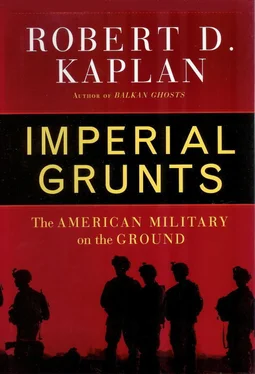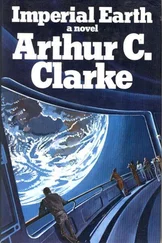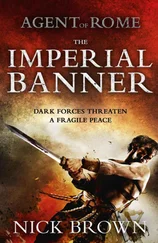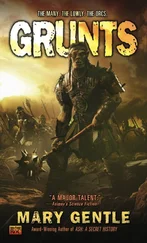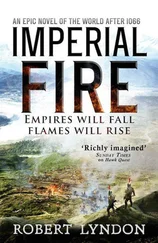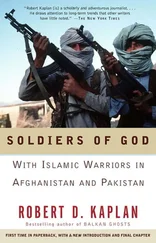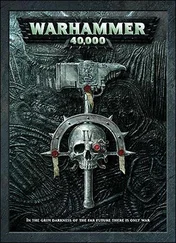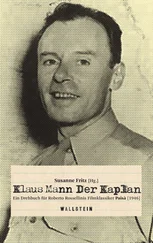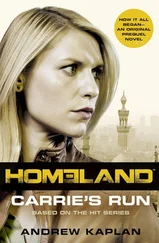———
I went out more times into the city to see Capt. Smith. As Bravo advanced westward, deeper into downtown Al-Fallujah, the POS (forward “position”) moved from the garage to a small warehouse with hardened cement walls. Because it had a high ceiling, Smith had to get near the roof in order to facilitate radio transmissions. Thus, on one occasion, Lt. Col. Byrne, I, and some other reporters who had recently arrived found Smith squatting atop a metal bookcase, speaking on the battalion tac as RPGs and gunfire registered outside on the street. He looked well rested after four hours of sleep, the most he had had in a week. “Blackhawk Two, this is Blackhawk Six, I need Red Cloud backed up. For the moment, it’s a Red Cloud and Little Wolf show.”
Smith then spoke over the ICOM, directing a Bravo platoon to the 905-degree grid, a few blocks farther to the west. Having returned to Iraq intending to bond with the local culture in the classic tradition of unconventional war—partly by growing mustaches and giving their forward operating bases Arabic names—circumstances had forced the marines to revert to direct action, and thus Al-Fallujah had become a familiar American urban space. Points on the map were identified not by any local landmark, but by their GPS grids. Streets had been given American names, like Michigan. Contact points with the enemy were color coded. And so I followed Smith and Byrne to “Violet,” an intersection where Alpha Company would link up with Bravo, where the commercial part of southern Al-Fallujah edged into the residential part. Here Bravo intended to go “firm” for a while: dig in and establish yet another POS.
We were now a hundred meters away from the point of contact with the enemy. Two Marine M1A1 Abrams tanks stood fifty meters away. We all crouched against a wall as bullets whizzed by. But as the marines consolidated the position, the whistles turned to cracks and we stood up and relaxed a bit. Someone took a leak. Through binoculars, men armed with RPG launchers, wearing checkered keffiyahs around their faces, could be seen surrounded by women and children, taunting us. Only the snipers tried to get shots off.
The third world urban environment was like the Old West, I thought, when the cavalry invested Indian encampments only to find the braves periodically surrounded by women and children. However much the cavalry tried to spare the lives of noncombatants, the inevitable collateral damage among civilians raised profound moral questions, especially among humanitarians back east, who, because of the dissolution of the mass citizen army at the end of the Civil War, no longer felt close to this smaller, horse-borne volunteer force beyond the Mississippi. 22
Byrne’s Humvee pulled up, with Cpl. Magdalin at the wheel. Byrne and Smith began conferencing with the base over the battalion tac. Smith wanted to move the two tanks southward to draw enemy fire away from Bravo, allowing his men to farther advance. But he did not have direct command over the tank unit, so the request had “to go up through staff” before the tanks right next to him could move. Eventually they did. Even here in the midst of the battlefield there was an issue with cumbersome management.
Moreover, Bravo and the other infantry companies were dangerously scattered throughout the southern half of the city, so much so that the enemy could easily infiltrate the large warren of streets to the rear between Bravo’s newly advanced position and the base about a mile away to the southeast. The company commanders would deal with this problem by standing up nonstop nighttime satellite patrols, despite the sleep deprivation afflicting many marines.
Another Marine battalion, the 3rd Battalion of the 4th Marine Regiment, would arrive in a few days from western Iraq to assist 1/5 and 2/1. But that redeployment, in turn, would make marines vulnerable in another part of their AOR. One hundred thirty thousand American troops in Iraq were simply not enough to deal with a fraction of that number of insurgents. It wasn’t only because insurgencies, pace nineteenth-century British Col. Callwell, arise from the soil itself, and thus have whole categories of advantages that a military force from the outside, alien to the culture, lacks. It was also because, as the large number of American troops near Baghdad International Airport attested, the U.S. defense establishment, despite all the talk of reform and transformation, was still organized for World War II and the Korean War, with too many chiefs at massive rear bases and too few Indians at the edges. It was the same problem that I had observed in the Philippines and in Afghanistan. It just existed on a bigger scale in Iraq.
I thought again of the Indian wars, and of military historian Robert M. Utley’s criticism of how the Army had responded to the massacre of Custer’s 7th Cavalry—the 9/11 of its day:
An enemy powerful enough to inflict so appalling a disaster seemed at the time to demand heavier armies than had yet been fielded. But once again the campaign demonstrated truths that so often eluded the frontier generals: heavy conventional columns rarely succeeded against the unconventional foe; the logistical requirements of provisioning so many men and horses so far from their bases usually turned such operations into exercises in self-preservation. 23
The Army of that era never truly learned the lesson that small units of foot soldiers were more effective against Indian braves than large mounted regiments, burdened by the need to carry forage for the horses. The Sioux and their allies were ultimately vanquished not because the U.S. Army fully adapted to the challenge of an unconventional enemy—it didn’t—but because of the flooding of the Old West with settlers, who were, in turn, aided by the railroad. 24This time, however, the U.S. military would have to do better.
———
I last saw Capt. Jason Smith of Baton Rouge, Louisiana, in the middle of a street in Al-Fallujah that was popping with small arms fire, his hands deep in his pockets, his expression hardy and purposeful. T. E. Lawrence called doubt “our modern crown of thorns”; Smith betrayed none. 25He was enunciating orders through the ICOM and conferring through the battalion tac: Blackhawk, Apache, Red Cloud, Crazy Horse… He might have been the subject of an oil portrait executed by Frederic Remington, or an officer of the old Confederacy that still inhabited the soul of the American military, invigorating its fighting spirit. His expression, his whole demeanor, was that of an earlier, less complicated age.
And yet, as necessary as Capt. Smith and others like him were for the United States and for the world, he was not ultimately the answer to the challenge raised by that vast crowd of the proletarian faithful I had seen strolling by the sea in the Yemeni port city of Mukalla at the very beginning of my travels. How to deal with that crowd? The answer existed in parts only, of which I had caught glimpses in Mongolia, on Basilan Island in the southern Philippines, on Lamu Island in Kenya, and elsewhere, for when imperialism is most obvious, as it was in Iraq, it was also most vulnerable and under siege.
In truth, Iraq in 2003 and 2004 was less a replay of Vietnam than of the Indian Mutiny against the British in 1857 and 1858, when the orientalists and other pragmatists in the British power structure, who wanted to leave traditional India as it was, lost sway to Evangelical and Utilitarian reformers who wanted to modernize and Christianize India—to make it more like England. But such attempts to bring the fruits of Western civilization to the Asian subcontinent were met with a violent revolt against imperial authority. Delhi, Lucknow, and other Indian cities were besieged and captured before being retaken by colonial forces. 26Yet the debacle did not signal the end of the British Empire, which continued on and expanded even for another hundred years. Instead, it signaled the transition from an ad hoc imperium fired by an intemperate, evangelical lust to impose its values to a calmer, more pragmatic and soldiering empire built on international trade and technology.
Читать дальше
